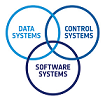Speaker
Description
Recent advances in machine learning and availability of massive computational power have attracted a lot of researchers to apply learning techniques to resolve control problems applied to space systems.
Although the results shown in literature so far appear to be promising, we question ourselves on how to develop a machine learning framework to handle the specificity of space systems. To be of relevance in general and in particular for space systems the new framework needs to be equipped with tools relying on a formal mathematical foundation for the realisation of guaranteed and predictable outcomes. When designed as such its mechanisation will lead to a series of tool sets that provide understandable, predictable, scalable and reliable products.
The controls machine learning framework tool set, to be able to cope with space systems in a changing and uncertain environment shall contain at least formal tools for dynamical systems modelling (first principles, off-line online system identification), for systems perception (sensing, estimation, sensor fusion, prediction) and systems action (real-time planning, prediction, real-time decision making, real-time control actuation).
We will look at parallels between machine learning and controls from a numerical optimisation perspective. A simple controls problem shall illustrate the performance and robustness of a machine learning design and its impacts.
We can conclude with some promising research directions that need special attention to meet future needs. What are the requirements for building machine learning assisted space systems providing a better understanding of systems dynamics operating in a complex and
constrained physical environment?
What can be achieved in modelling beyond what is known today in solving the limitations of today's problems? In a similar way we ask ourselves the same questions for the of perception and action problems. Furthermore, what are the impacts downstream in the controls development process?
Typically, what validation and verification challenges, software and implementation impacts does the technology bring with it?
Scalability of the technology targeting avionics architectures, their computational infrastructure will all need to be addressed on their own.

